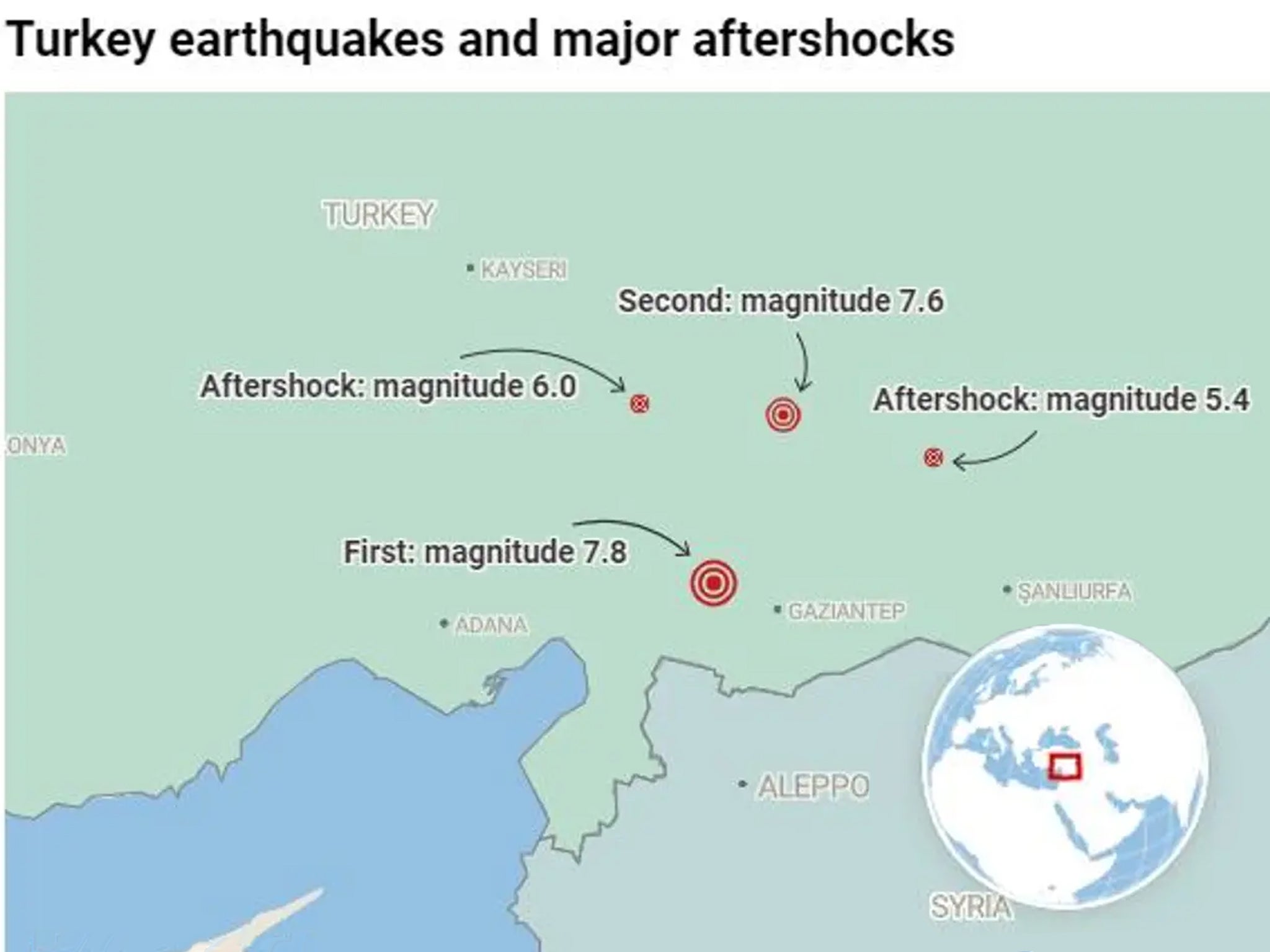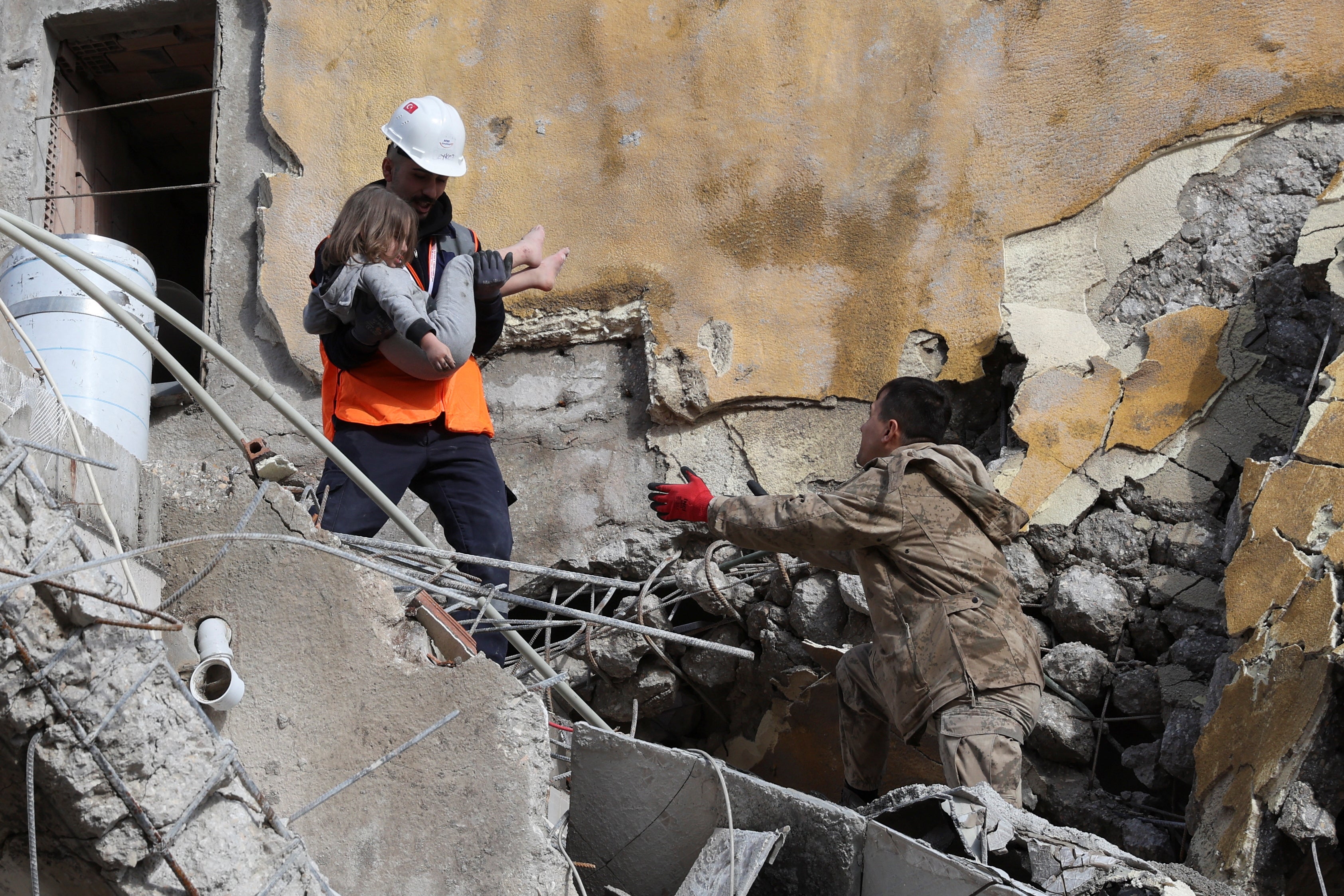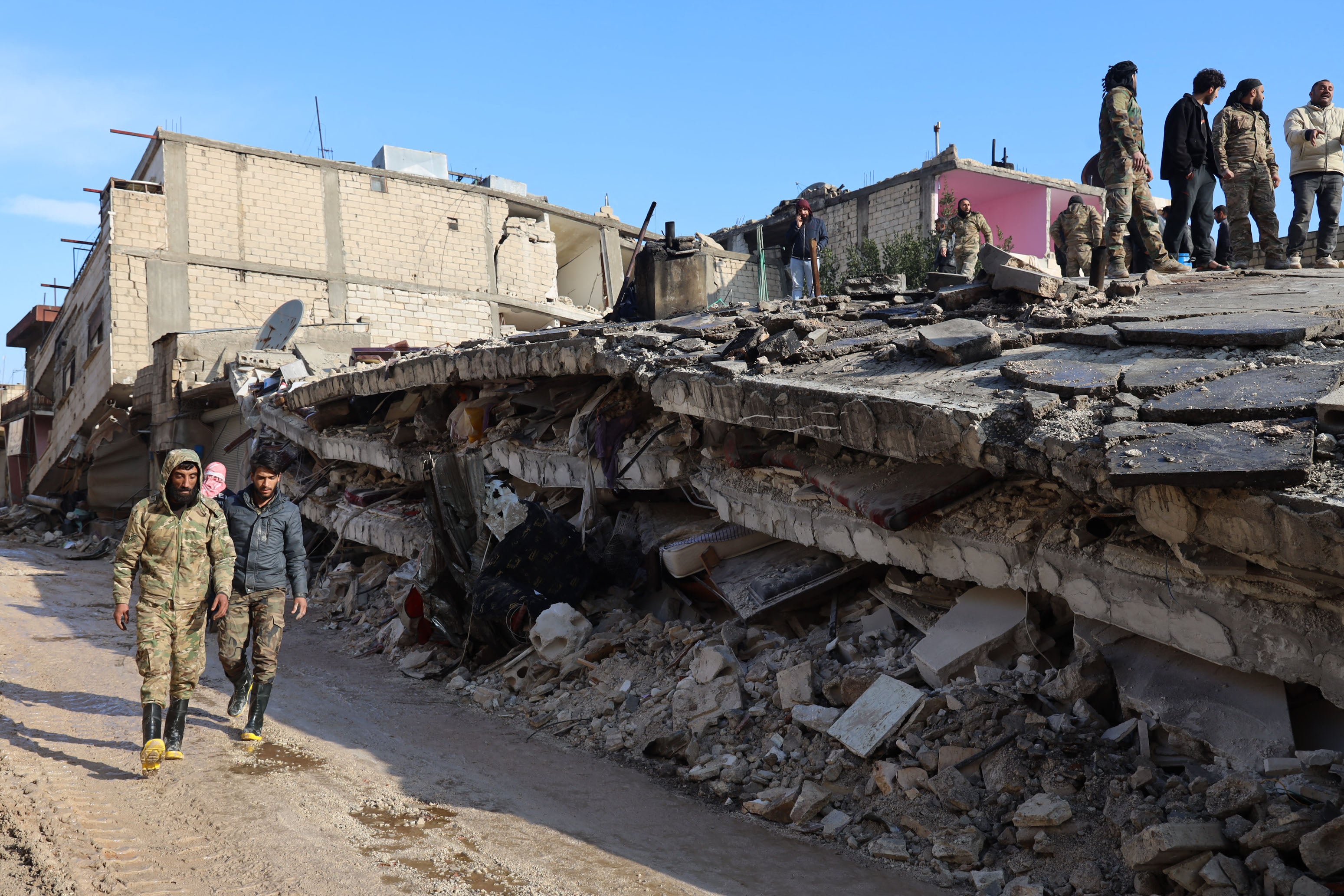Map of Turkey shows areas affected by huge earthquakes as death toll tops 8,700
Turkish authorities say some 13.5 million people have been affected in an area spanning 280 miles
Your support helps us to tell the story
From reproductive rights to climate change to Big Tech, The Independent is on the ground when the story is developing. Whether it's investigating the financials of Elon Musk's pro-Trump PAC or producing our latest documentary, 'The A Word', which shines a light on the American women fighting for reproductive rights, we know how important it is to parse out the facts from the messaging.
At such a critical moment in US history, we need reporters on the ground. Your donation allows us to keep sending journalists to speak to both sides of the story.
The Independent is trusted by Americans across the entire political spectrum. And unlike many other quality news outlets, we choose not to lock Americans out of our reporting and analysis with paywalls. We believe quality journalism should be available to everyone, paid for by those who can afford it.
Your support makes all the difference.Another earthquake rocked Turkey on Tuesday morning after two devastating tremors the day before killed thousands of people.
It struck north of the city of Adiyama at around 11.30am, just over 24 hours after a 7.8 magnitude tremor wreaked havoc in the worst earthquake to hit the country in more than 20 years.
Dozens of smaller aftershocks followed the initial tremor, with the combined death toll in Turkey and neighbouring Syria topping 8,700.

Turkish authorities say some 13.5 million people have been affected in an area spanning roughly 280 miles from Adana in the west to Diyarbakir in the east, and 180 miles from Malatya in the north to Hatay in the south.
Syrian authorities have reported deaths as far south as Hama, some 60 miles from the epicentre.
Thousands of buildings were toppled, hospitals and schools wrecked and tens of thousands of people were injured or left homeless in a number of Turkish and Syrian cities.
The region sits on top of major fault lines and is frequently shaken by earthquakes. Some 18,000 were killed in similarly powerful earthquakes that hit northwest Turkey in 1999.
Overwhelmed rescuers struggled to save people trapped under the rubble on Tuesday, with despair mounting and the scale of the disaster hampering relief efforts.
Aid officials voiced particular concern about the situation in Syria, already afflicted by a humanitarian crisis after nearly 12 years of civil war.
The affected area in Syria is divided between government-controlled territory and the country’s last opposition-held enclave, which is surrounded by Russian-backed government forces. Turkey is home to millions of refugees from the Syrian civil war.
Turkish President Tayyip Erdogan has declared a disaster zone in 10 provinces, imposing a state of emergency in the region for three months.

In the Turkish city of Antakya near the Syrian border, where 10-storey buildings crumbled onto the streets, rescue work is being conducted on one out of dozens of mounds of rubble.
The temperature was close to freezing as the rain came down and there was no electricity or fuel in the city. Families slept in cars lined up in the streets after their homes were destroyed.
One woman called Ayla, standing by a pile of rubble where an eight-storey building once stood, said she had driven to Hatay on Monday in search of her mother.
"There have been no survivors yet,” she said. “A street dog came and barked at a certain point for long, I feared it was for my mother. But it was someone else. I turned on the lights of the car to help the rescue team. They took out only two bodies so far, no survivors.”

In Kahramanmaras, north of Antakya, families gathered around fires and wrapped themselves in blankets to stay warm.
"We barely made it out of the house," said Neset Guler, huddling with his four children. "Our situation is a disaster. We are hungry, we are thirsty. It’s miserable."
Turkey’s Disaster and Emergency Management Presidency (AFAD) said nearly 8,000 people have been rescued from 4,758 buildings destroyed on Monday
Around 13,700 search and rescue personnel were deployed and more than 41,000 tents, 100,000 beds and 300,000 blankets had been sent to the region.




Join our commenting forum
Join thought-provoking conversations, follow other Independent readers and see their replies
Comments